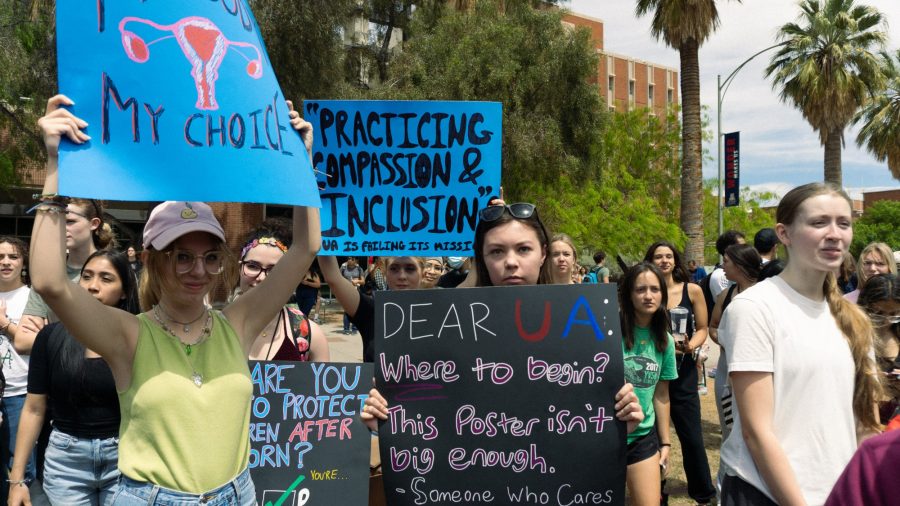The Arizona House of Representatives voted to repeal the state’s 1864 abortion ban on Wednesday, April 24, with three House Republicans joining Democrats to approve the repeal in the third round of voting.
The legislation will now be heard in the State Senate on May 1. Both the Senate and the House are Republican-controlled. In the House’s Wednesday vote, Republican Representatives Matt Gress, Tim Dunn and Justin Wilmeth joined the coalition of 29 Democrats in the House to approve the repeal.
If this legislation fails to advance past the State Senate, the 1864 ban could go into effect as soon as June 8, and would prohibit all abortions except when the pregnancy is fatal for the mother.
Arizona Gov. Katie Hobbs, who has been outspoken in her criticism of the Supreme Court ruling, released a statement calling on the Senate to replicate the actions of the House and vote to repeal the ban.
“Today, I am glad to see the House follow my calls to repeal the archaic 1864 total abortion ban that could jail doctors and endanger the lives of women in Arizona. I’m thankful to House Democrats who worked relentlessly for years to repeal this draconian ban. Now, the Senate must do the right thing and send this repeal to my desk,” Hobbs’ statement read.
Arizona Attorney General Kris Mayes, who previously said she would not enforce the “draconian” abortion ban, repeated a similar call to action to the Arizona State Senate.
“I am grateful that sanity prevailed in the Arizona House today with the repeal of the draconian, near-total 1864 abortion ban. That 160 year-old-law that criminalizes doctors and nurses for caring for their patients and endangers the lives and health of [women] across our state has no place in the 21st century. I call on the Senate to quickly follow suit and join the House in repealing this law,” Mayes’ statement read.
In the days and weeks following the AZ Supreme Court’s ruling that upheld this centuries-old law, members of both parties at a state and federal level have condemned the ban.
United States President Joe Biden denounced the decision.
In a statement released by the White House, Biden called the ban “cruel” and said “This ruling is a result of the extreme agenda of Republican elected officials who are committed to ripping away women’s freedom […]. We will continue to fight to protect reproductive rights and call on Congress to pass a law restoring the protections of Roe v. Wade for women in every state.”
Arizona Senator Mark Kelly released a statement reading “This backwards law may have been written 160 years ago, but it’s going to be reinstated because of politicians who worked to overturn Roe v. Wade and its protections for abortion rights. I know this is a difficult day for so many Arizonans, and trust that I’m going to fight as hard as ever to restore reproductive rights so that Arizona women can once again make these decisions for themselves.”
Even former President Donald Trump, who has advocated a “pro-life” stance in the past and whose Supreme Court appointments were responsible for overturning Roe v. Wade, seemed to disapprove of the ruling, saying it went “too far.”
As leaders on both sides of the aisle seem to disagree with Arizona’s Civil War-era abortion ban, national focus falls on the Arizona State Senate, which will decide the future of abortion rights in the state.
In the meantime, Arizona abortion rights activists continue work on getting a constitutional amendment on the state’s November ballot that would establish a “fundamental right” to abortion access until the fetus is viable.
Follow the Daily Wildcat on Instagram and Twitter/X










